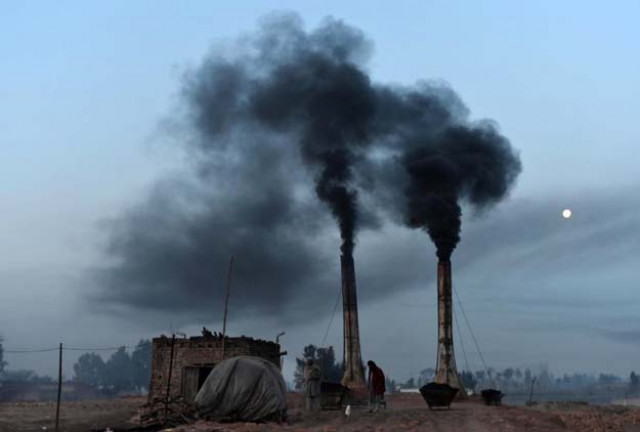Sindh agency seals 17 factories for violating environmental laws
SEPA official says it will serve notice to more units within a week or two

SEPA official says it will serve notice to more units within a week or two. PHOTO: EXPRESS
“We will continue to go after those who are polluting the environment and damaging Sindh’s economy,” SEPA Director General Baqaullah Unnar told The Express Tribune.
Unnar, who has taken over the charge two-and-a-half months ago, said that the agency will also start serving notices to more factories in a week or two. SEPA DG informed that the agency has also sent 27 fresh cases to Sindh Environmental Tribunal, which was set up under the Pakistan Environmental Protection Act (Pepa) 1997 to hear complaints about pollution, for further investigations.
About a month ago, SEPA revived its laboratory to test water pollution, which was not working for about seven years. The agency is now testing water samples to take action against those factories that are not treating their waste water.
Despite all the recent measures taken by SEPA in the last few months, environment experts say factory owners in Sindh are generally not complying with environment laws and do not care about the environmental degradation they cause.
Environment experts say SEPA only acted when the Supreme Court of Pakistan started taking up environment cases. Otherwise, no government department was ready to take on polluters, especially powerful factory owners, who are playing with human and marine life in Arabian Sea. They also say environment ministry is the least important ministry for the Sindh government. SEPA former director general Naeem Ahmed Mughal sealed dozens of factories and issued over 300 notices in Karachi in January and February before he left his job.
When asked what action is he taking against those factories that were earlier issued notices, Unnar said that the agency will evaluate those units and take action against them if they fail to comply with the laws.
Earlier, when SEPA sealed factories in February on environment concerns, all seven leading industrial associations in Karachi threatened the Sindh government to close down factories in protest.
SEPA asked industries to install separate effluent treatment plants to process their waste water because it is fast becoming a big environmental hazard for Pakistan. Most industries ignored SEPA notices, but a few of them gave an undertaking to install effluent treatment plants within a year.
Karachi industrialists say Sindh government should fulfil its promise of setting up five combined effluent treatment plants in the industrial zones instead of acting against factories.
According to a March 2016 study, which has been submitted for review of the Sindh government, found that the five combined effluent treatment plants would need an investment of Rs11.4 billion.
Until 2006, Pakistan was losing over Rs359 billion annually due to environment degradation. Whereas a recent study shows that only Sindh is losing over $1 billion annually mainly due to polluting factories and vehicles.
Published in The Express Tribune, July 16th, 2017.
Like Business on Facebook, follow @TribuneBiz on Twitter to stay informed and join in the conversation.



















COMMENTS
Comments are moderated and generally will be posted if they are on-topic and not abusive.
For more information, please see our Comments FAQ